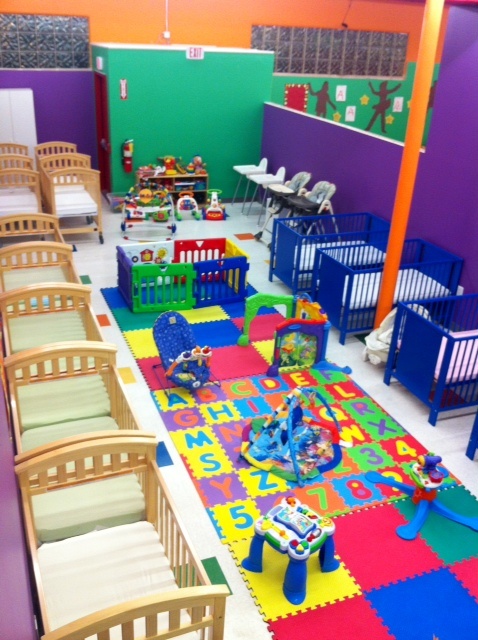New Zealand’s early childhood education (ECE) sector offers a rewarding career path for individuals passionate about nurturing the growth and development of young children. With a strong emphasis on play-based learning and the bicultural curriculum Te Whāriki, the country provides a unique and supportive environment for ECE professionals. If you’re looking to embark on or continue your ECE career in New Zealand, understanding the job market, qualifications, and application process is key.
Understanding the New Zealand ECE Landscape
The ECE sector in New Zealand is diverse, encompassing various types of services including kindergartens, childcare centres, home-based care, and playgroups. The demand for qualified and registered ECE teachers remains consistent across the country, though opportunities may vary by region. The sector values educators who are culturally responsive, understand Te Whāriki, and are committed to ongoing professional development.
Essential Qualifications and Registration
To work as a qualified early childhood jobs teacher in New Zealand, you will generally need:
- A recognised ECE teaching qualification: This typically means a Bachelor of Teaching (Early Childhood Education) or a Graduate Diploma of Teaching (Early Childhood Education). These are usually three-year full-time degrees or one-year graduate diplomas for those who already hold a bachelor’s degree in another field.
- New Zealand Teacher Registration and Practising Certificate: All teachers working in licensed ECE services must be registered with the Teaching Council of Aotearoa New Zealand and hold a current practising certificate. This involves meeting requirements related to qualifications, English language competency, police vetting, and demonstrating fitness to teach.
- Overseas Qualifications: If you have an ECE qualification from overseas, it will need to be assessed by the New Zealand Qualifications Authority (NZQA) to determine its equivalence to a New Zealand Level 7 qualification. You will then need to apply for registration with the Teaching Council.
Even if you are not fully qualified, there are opportunities to work as an unqualified teacher or teacher aide while you pursue your qualifications. Some home-based education roles may also have different qualification requirements (e.g., NZ Certificate in Early Childhood Education and Care Level 4).
Where to Look for ECE Jobs
Several platforms and strategies can help you find ECE job vacancies in New Zealand:
- General Job Boards:
- Trade Me Jobs (trademe.co.nz/a/jobs): One of New Zealand’s largest online marketplaces, with a dedicated section for education jobs, including ECE.
- Seek (seek.co.nz): Another major job portal with a wide range of ECE vacancies.
- Jora (nz.jora.com): Aggregates job listings from various sources across New Zealand.
- Specialised ECE Job Boards and Recruitment Agencies:
- Education Gazette (gazette.education.govt.nz/vacancies/): The official publication for education vacancies in New Zealand, including many ECE roles.
- Jitbug (jitbug.co.nz) / Dynamic ECE: Specialises in connecting ECE teachers with centres, often for relief (substitute) teaching roles, but also permanent positions. They often use an app for ease of connection.
- Candidex (candidex.co.nz): An education recruitment agency focusing on connecting educators with schools and ECE centres in New Zealand and Australia.
- Individual Kindergarten/Centre Websites: Many larger ECE providers (e.g., BestStart, Kindercare, Barnardos New Zealand) list vacancies directly on their corporate websites.
- Networking: Connect with other ECE professionals, attend sector events, and join relevant social media groups. Word-of-mouth and professional networks can be valuable.
Crafting a Standout Application
Your CV (resume) and cover letter are your first impression. Tailor them specifically for the New Zealand ECE context:
- CV:
- Highlight relevant experience: Emphasise your experience working with young children, detailing your responsibilities and achievements.
- Showcase knowledge of Te Whāriki: Demonstrate your understanding of the curriculum’s five strands (Well-being, Belonging, Contribution, Communication, Exploration) and how you apply them in practice.
- Include bicultural competence: Mention any experience or understanding of Te Reo Māori and tikanga Māori, and your commitment to bicultural practices.
- List qualifications and registration: Clearly state your ECE qualifications and your New Zealand Teacher Registration status.
- Quantify achievements: Instead of just listing duties, describe the impact of your work (e.g., “Implemented a new outdoor play programme that increased children’s engagement by 20%”).
- Cover Letter:
- Personalise it: Address the hiring manager by name if possible.
- Express genuine interest: Explain why you are passionate about ECE in New Zealand and specifically interested in their centre.
- Connect your skills to the job description: Directly address the key requirements listed in the advertisement, providing specific examples.
- Showcase cultural responsiveness: Briefly mention your commitment to biculturalism and supporting diverse learners.
- Professional closing: Reiterate your enthusiasm and suggest a next step, such as an interview.
Ongoing Professional Development
The ECE sector in New Zealand highly values continuous learning. Once employed, engage in professional development opportunities to stay current with best practices, deepen your understanding of Te Whāriki, and explore areas like culturally responsive pedagogy, child protection, and specific age group care. Organisations like Childspace and Te Rito Maioha offer a range of courses and workshops.
Finding an ECE job in New Zealand requires a combination of appropriate qualifications, strategic job searching, and a well-crafted application that highlights your passion and alignment with the country’s unique early childhood philosophy.


